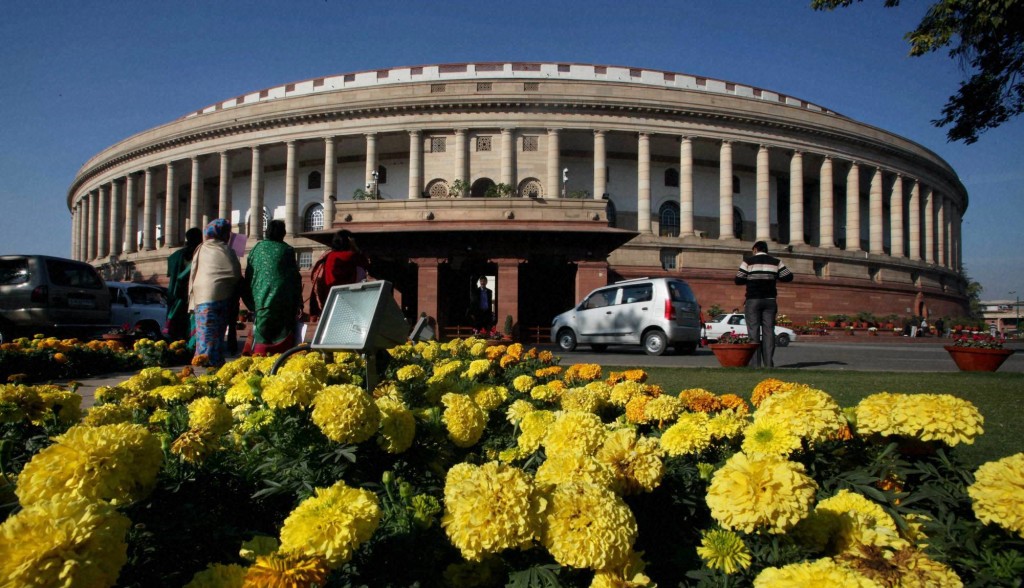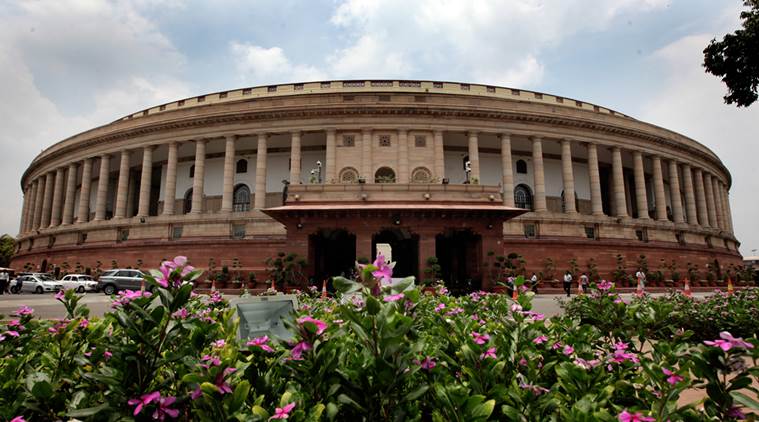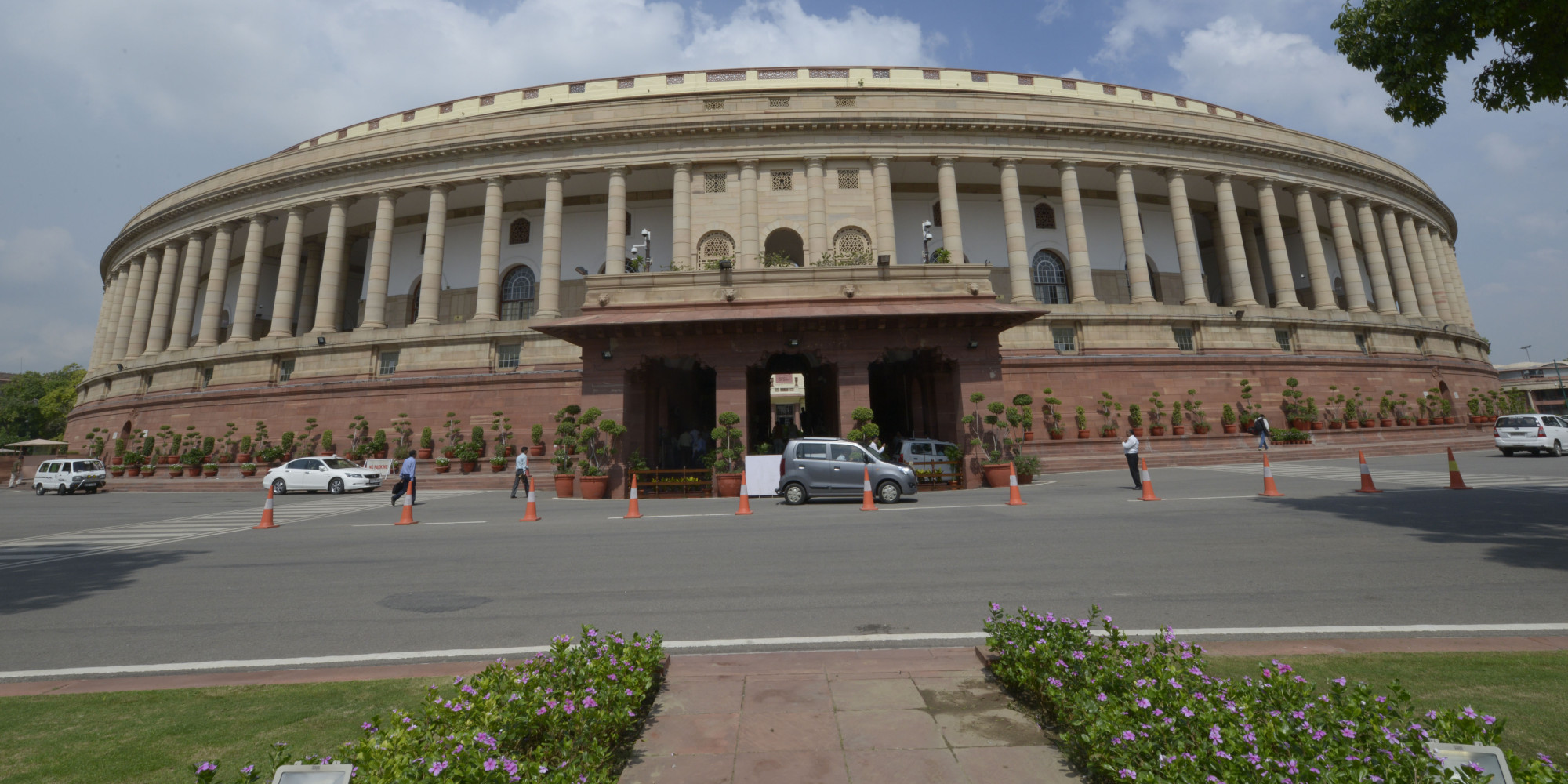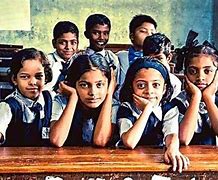Feature
Government introduced 6 bills in Parliament, 2 passed in Lok Sabha

New Delhi: The fourth sitting of the monsoon session of Parliament on Monday saw the government giving a push to its legislative agenda with six bills introduced and two passed in the Lok Sabha while three bills were taken up for passage in the Rajya Sabha.
The Lok Sabha did not witness any adjournment while the Upper House saw one over demands related to special category status for Andhra Pradesh and Congress allegations on misuse of Central agencies.
Unlike the second half of the Budget session which was washed out, this session has seen smooth functioning with members from both the ruling NDA and the Opposition eagerly taking part in discussions.
Five of the six bills introduced in the Lok Sabha will replace the ordinances brought by the Narendra Modi government earlier this year.

These bill are the Insolvency and Bankruptcy Code (Second Amendment) Bill, 2018, Criminal Law (Amendment) Bill, 2018, National Sports University Bill, 2017, Homoeopathy Central Council (Amendment) Bill, 2018 and The Commercial Courts, Commercial Division and Commercial Appellate Division of High Courts (Amendment) Bill, 2018.
Apart from these five bills, the Micro, Small and Medium Enterprises Development (Amendment) Bill, 2018 was also introduced in the Lok Sabha.
During the introduction of amendments to the insolvency law, Opposition members targeted the government over its intentions. They alleged that some changes had been brought to “help one industry”. interim Finance Minister Piyush Goyal rebutted their charge saying the amendment had been brought on the recommendations of a committee, and that the Bill was initially introduced as the banking sector was going through a crisis due to “indiscriminate lending” during the UPA rule. The Bill allows home buyers to be recognised as financial creditors.
Total of six bills introduced in Parliament, government passed 2 in Lok Sabha:
The Lok Sabha passed the Negotiable Instruments (Amendment) Bill, 2017 and the National Council for Teacher Education (Amendment) Bill, 2017 following brief discussions.
The Negotiable Instruments Bill allows payment of an interim compensation in cheque dishonour cases to prevent holding of payments pending a long trial.
The Bill on teacher education seeks to grant retrospective recognition to the Central and state universities which have conducted teacher education courses without the permission of the National Council for Teacher Education.
The Rajya Sabha passed the Specific Relief (Amendment) Bill, 2017, which sets out remedies for parties whose contractual or civil rights have been violated. The amendments propose that if a party breaks an agreed contract, the affected party will have the freedom to get it executed by a third party. The Bill has been passed by the Lok Sabha.

The Upper House saw discussion on the Motor Vehicles (Amendment) Bill, 2017 which provides for a steep increase in penalty for traffic violations. Road Transport and Highways minister Nitin Gadkari is expected to reply to the debate on Tuesday.
The House also took up The Ancient Monuments and Archaeological Sites and Remains (Amendment) Bill, 2017. Several Opposition members said the Bill should be sent to a select committee. Chairman Venkaiah Naidu asked the Parliamentary Affairs Minister to discuss the issue with all parties and come back to the House.
The monsoon session has been productive for the government. The first day of the session on July 18 saw three bills being introduced in the Lok Sabha. The House passed the Fugitive Economic Offenders Bill last Thursday and the Rajya Sabha passed amendments to the Prevention of Corruption Act. The Lok Sabha had witnessed a lively debate during the no-confidence motion on Friday.
Entertainment
Meghalaya Reserves Legalized Gambling and Sports Betting for Tourists

The State Scores Extra High on Gaming-Friendly Industry Index
Meghalaya scored 92.85 out of 100 possible points in a Gaming Industry Index and proved to be India’s most gaming-friendly state following its recent profound legislation changes over the field allowing land-based and online gaming, including games of chance, under a licensing regime.
The index by the UK India Business Council (UKIBC) uses a scale of 0 to 100 to measure the level of legalisation on gambling and betting achieved by a state based on the scores over a set of seven different games – lottery, horse racing, betting on sports, poker, rummy, casino and fantasy sports
Starting from February last year, Meghalaya became the third state in India’s northeast to legalise gambling and betting after Sikkim and Nagaland. After consultations with the UKIBC, the state proceeded with the adoption of the Meghalaya Regulation of Gaming Act, 2021 and the nullification of the Meghalaya Prevention of Gambling Act, 1970. Subsequently in December, the Meghalaya Regulation of Gaming Rules, 2021 were notified and came into force.
All for the Tourists
The move to legalise and license various forms of offline and online betting and gambling in Meghalaya is aimed at boosting tourism and creating jobs, and altogether raising taxation revenues for the northeastern state. At the same time, the opportunities to bet and gamble legally will be reserved only for tourists and visitors.
“We came out with a Gaming Act and subsequently framed the Regulation of Gaming Rules, 2021. The government will accordingly issue licenses to operate games of skill and chance, both online and offline,” said James P. K. Sangma, Meghalaya State Law and Taxation Minister speaking in the capital city of Shillong. “But the legalized gambling and gaming will only be for tourists and not residents of Meghalaya,” he continued.
To be allowed to play, tourists and people visiting the state for work or business purposes will have to prove their non-resident status by presenting appropriate documents, in a process similar to a bank KYC (Know Your Customer) procedure.
Meghalaya Reaches Out to a Vast Market
With 140 millions of people in India estimated to bet regularly on sports, and a total of 370 million desi bettors around prominent sporting events, as per data from one of the latest reports by Esse N Videri, Meghalaya is set to reach out and take a piece of a vast market.
Estimates on the financial value of India’s sports betting market, combined across all types of offline channels and online sports and cricket predictions and betting platforms, speak about amounts between $130 and $150 billion (roughly between ₹9.7 and ₹11.5 lakh crore).
Andhra Pradesh, Telangana and Delhi are shown to deliver the highest number of bettors and Meghalaya can count on substantial tourists flow from their betting circles. The sports betting communities of Karnataka, Maharashtra, Uttar Pradesh and Haryana are also not to be underestimated.
Among the sports, cricket is most popular, registering 68 percent of the total bet count analyzed by Esse N Videri. Football takes second position with 11 percent of the bets, followed by betting on FIFA at 7 percent and on eCricket at 5 percent. The last position in the Top 5 of popular sports for betting in India is taken by tennis with 3 percent of the bet count.
Local Citizens will Still have Their Teer Betting
Meghalaya residents will still be permitted to participate in teer betting over arrow-shooting results. Teer is a traditional method of gambling, somewhat similar to a lottery draw, and held under the rules of the Meghalaya Regulation of the Game of Arrow Shooting and the Sale of Teer Tickets Act, 2018.
Teer includes bettors wagering on the number of arrows that reach the target which is placed about 50 meters away from a team of 20 archers positioned in a semicircle.
The archers shoot volleys of arrows at the target for ten minutes, and players place their bets choosing a number between 0 and 99 trying to guess the last two digits of the number of arrows that successfully pierce the target.
If, for example, the number of hits is 256, anyone who has bet on 56 wins an amount eight times bigger than their wager.























